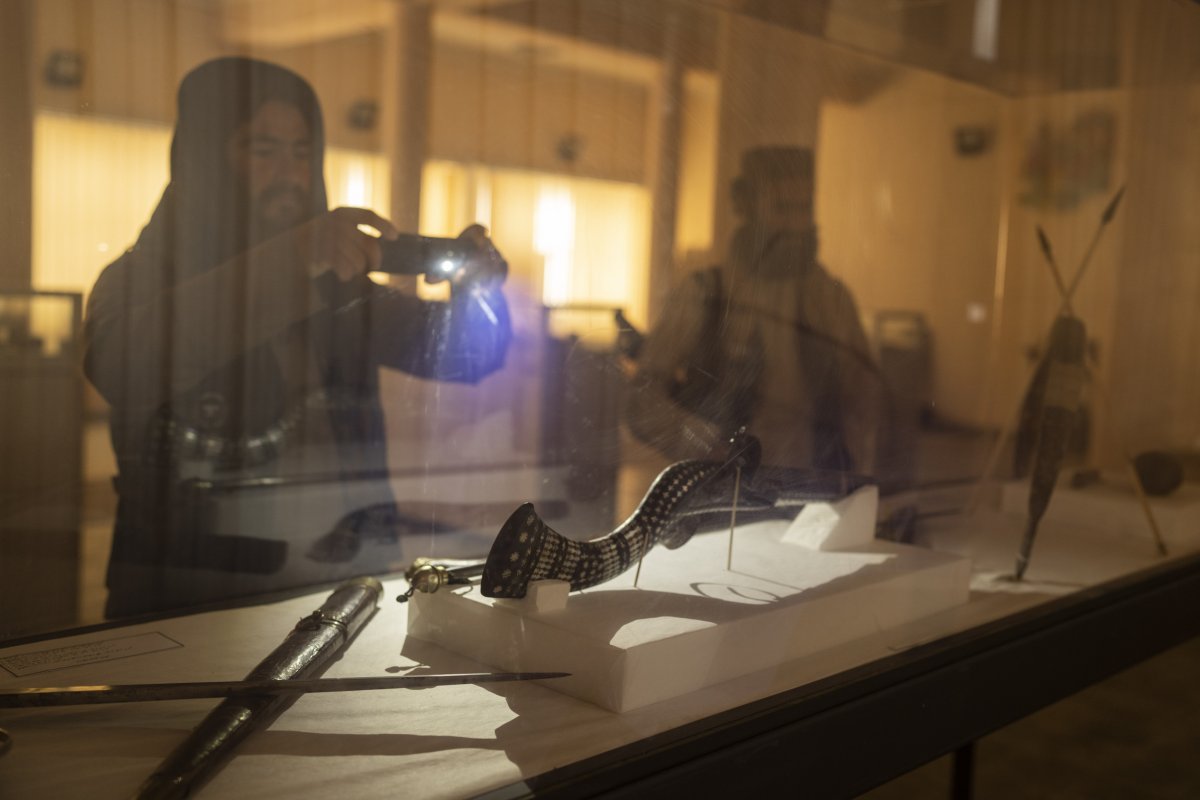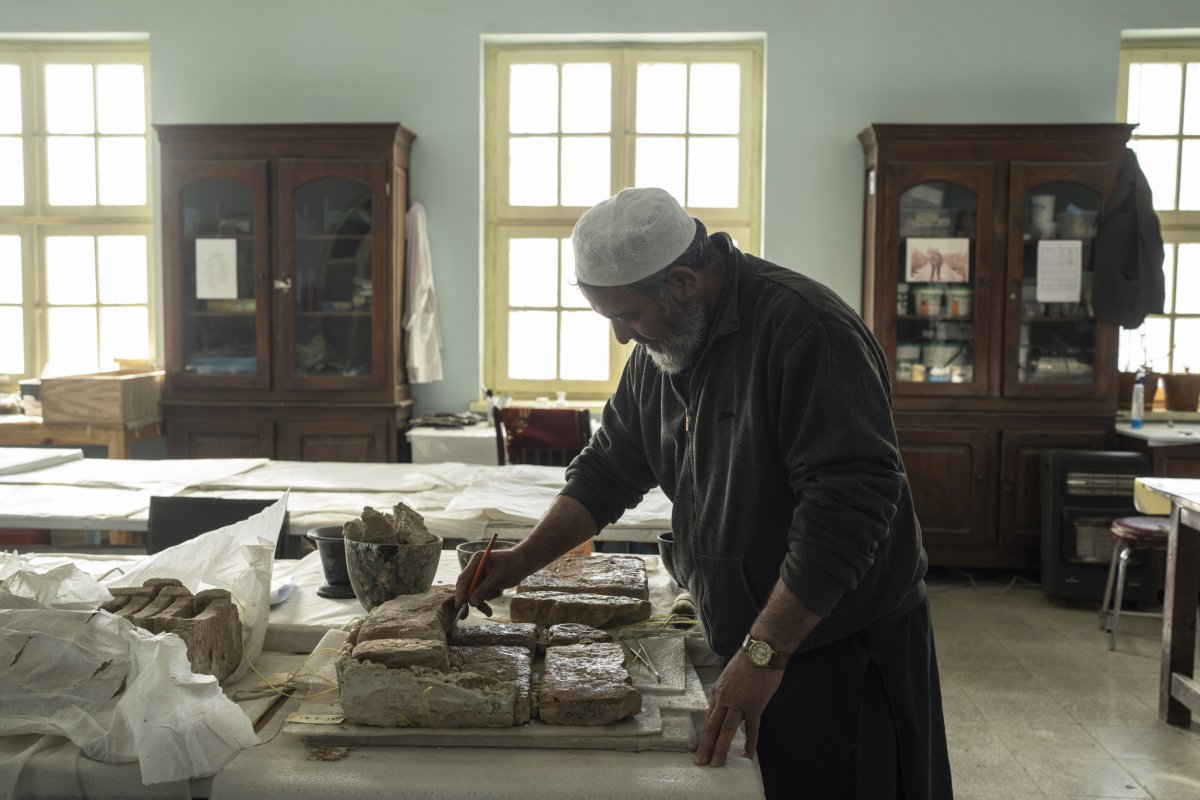The National Museum of Afghanistan is open again, though this time with an unpaid staff, Taliban guards and the occasional blackout.
The Kabul museum's director, Mohammad Fahim Rahimi, told the Associated Press that the Taliban has allowed him and the museum staff to continue their work, though they have not been paid since August.
The museum reopened last week for the first time since the mid-August Taliban takeover. The museum's website states that it was Afghanistan's first museum, established in 1919. It houses artifacts dating to the Stone Age.
Rahimi added that the security has changed, with Taliban guards replacing police who used to patrol the building. According to AP, 50 to 100 people visit the museum every day.
Frequent power outages have plagued the museum since its reopening, with the museum's generator having recently broken down. Many attendees have needed to use their cellphone lights to view artifacts in dark galleries.
Despite issues, many Taliban members have visited the museum in the past week, some expressing regret over the organization's 2001 ransacking of the museum and destruction of artifacts.
A Taliban member named Saifullah, a teacher at a religious school, told AP that he believed the destruction was caused by low-ranking members without approval from top officials.
"Generations can learn from this, and what we had in the past," he said. "We have a rich history."
For more reporting from the Associated Press, see below.

"This is from our ancient history, so we came to see it," said Taliban fighter Mansoor Zulfiqar, a 29-year-old originally from Khost province in southeastern Afghanistan who has now been appointed as a security guard at the Interior Ministry. "I'm very happy," he said of his first visit to the museum, marveling at his country's national heritage.
Zulfiqar said he had spent 12 years in Kabul's notorious Pul-e-Charkhi prison, Afghanistan's largest. While there, he said, someone had told him about the museum and he dreamt of the day when the Taliban would rule Afghanistan again and he would be able to visit the museum.
But when Zulfiqar was just a boy in 2001, the Taliban ransacked the museum, smashing priceless statues, especially ones considered un-Islamic. One of them, the remnants of a limestone statue believed to be of a king dating from the second century, stands at the entrance to the museum building, now restored by experts from France and the museum's own restoration department.
In the same year, the Taliban dynamited two giant sixth-century buddha statues carved into a cliff-face in Bamiyan in central Afghanistan on orders from Taliban leader Mullah Mohammed Omar, a move that was met with international outrage.
So as the Taliban swept through Afghanistan this summer, taking province after province, there were grave concerns that a similar fate awaited the country's cultural heritage, especially anything from pre-Islamic times. So far at least, this has not appeared to be the case.
Touring the museum for the first time, Saifullah, who goes by one name, said he would encourage his students, some of whom were now guards at the museum itself, to visit the National Museum of Afghanistan.
Perhaps Afghanistan's new rulers now agree with the inscription engraved on a plaque outside the museum building's entrance: "A nation stays alive when its culture stays alive."

Uncommon Knowledge
Newsweek is committed to challenging conventional wisdom and finding connections in the search for common ground.
Newsweek is committed to challenging conventional wisdom and finding connections in the search for common ground.
About the writer
To read how Newsweek uses AI as a newsroom tool, Click here.








